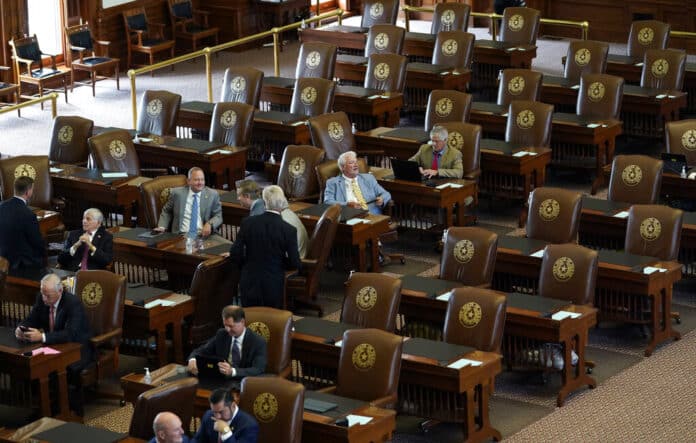It’s unfortunate that Texas lawmakers feel the need to abscond in order to keep legislation from advancing. It’s hard to negotiate with people who aren’t there.
The Democratic House members left the state on Monday, in order to both stop unpalatable voting restrictions from passing and to avoid their own arrest for truancy, and went to Washington, D.C., to lobby Congress for voting reforms that they hope will trump any action the state lawmakers might take.
The Democrats’ absence doesn’t just stop action on the proposed voting restrictions, but also on the other topics on all 11 subjects the Gov. Abbott asked the Legislature to address. In addition to voting changes they also include social media content, family violence, abortion, teacher pay and other budgetary items and other topics.
The absconders say they’re willing to stay out of the state until Aug. 8, when the special session is scheduled to end. Gov. Greg Abbott, however, can continue to call successive special sessions until all items on the agenda are addressed, setting up a possible standoff that could last all year.
Senators are still working as we write this. That body has 18 Republicans, three short of a quorum, but enough Democrats are showing up to enable the body to conduct its business.
Our representative democracy wasn’t designed like this. Traditionally, elected officials were expected to represent the interests of their constituents, and many had pledged to do so even if those interests didn’t agree with their own. They have been expected to accept the will of the majority, even when they’re in the minority. In recent years, however, many lawmakers have suggested that in electing them, voters were endorsing their own positions and they were free to defer to their own beliefs or their party’s agenda. Do today’s laws represent the will of the majority of the people, or the majority of the lawmakers who might have their own reasons for voting as they do?
It could be a moot issue, as long as voters know what they’re getting for their support. Regardless, elected officials should be willing, and able, to fight for their constituents instead of running away. That’s what the political process is all about.
Obviously, the Democrats don’t believe that fair debate is possible under the current political atmosphere. Republicans haven’t given them much reason to believe otherwise, passing some issues by using parliamentary technicalities rather than convincing their peers of the validity of their positions.
Texans — and all Americans — deserve better than this. They should be able to trust that their representatives can engage in frank debate — heated if necessary — while maintaining respect for each other, for the people they represent, and for the rules under which they are expected to work.
In the end, no legislation is better than bad legislation. If the Republican majority isn’t willing to consider the valid concerns of those who question their proposed voting restrictions, then the Democrats should stay away. We must hope, however, that the trend of resorting to brute force or trickery, but either side, ends. And let us hope that in the next election voters give a hard look at whether their representatives are truly doing what they have been asked to do.





